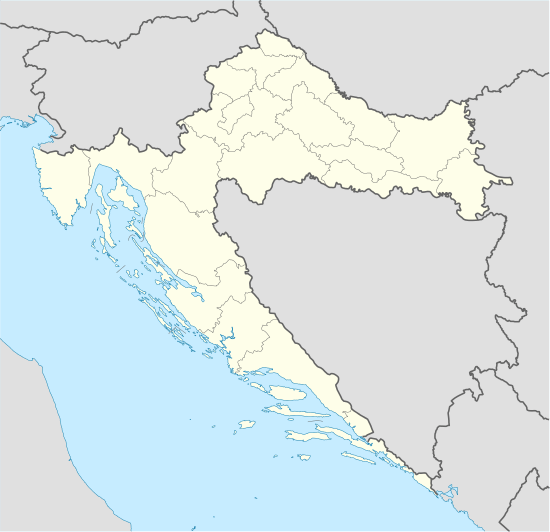Voćin

Voćin is a village and municipality in western Slavonia, Croatia, located southwest of Slatina and east of Daruvar. The population of the municipality is 2,384, with 1,161 people living in Voćin itself (census 2001).
Voćin, a pilgrimage site, is located in a valley of the Voćinska Rijeka at the foot of Papuk Mountain. The surrounding area is notable for the Lisičine arboretum (one of the three arboretums in Croatia, the other two being Trsteno and Opeka), the special Sekulinačke Planine forest vegetation reserve (which includes a large primaeval forest of mountain beech) and the unique geological monument of Rupnica, famous for the secretion of albite (white feldspar) riolite. The major annual event is related to the Birth of Mary (8 September), when a number of pilgrims visit the ruins of the late Gothic Catholic church of St. Mary. In the late 19th and early 20th century, Voćin was part of the Virovitica County of the Kingdom of Croatia-Slavonia. The church was destroyed during World War II and rebuilt in 1973.

During the Croatian War of Independence, the village's was the site of a massacre by the Serb White Eagles, who killed 43 villagers, all but one of whom were ethnic Croats. A Serb civilian who tried to protect his neighbours was the other fatality. Overnight, between 13-14 December 1991, the village's 550-year-old church was destroyed by explosive charges.
Demographics
According to the 2001 Census, Voćin had 2,421 inhabitants:
See also
| Wikimedia Commons has media related to Voćin. |
External links
Coordinates: 45°37′N 17°33′E / 45.617°N 17.550°E